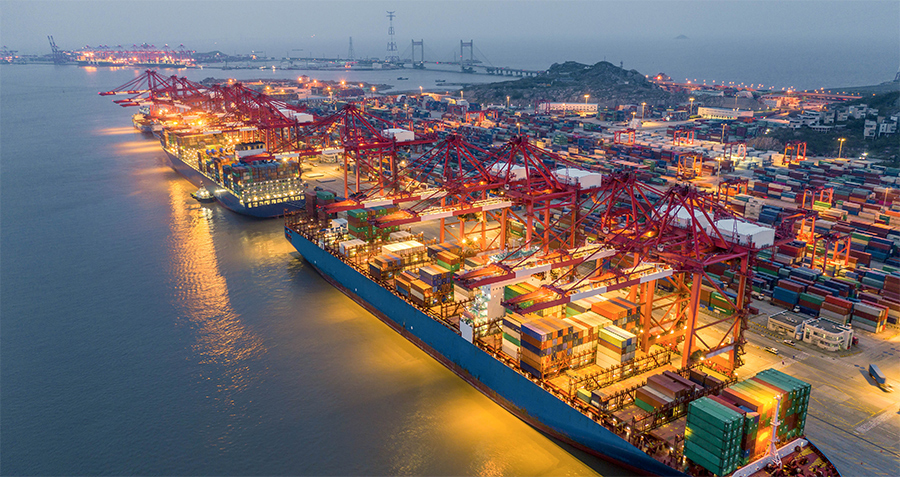
Kent Kedl, Senior Partner with British consultancy Control Risks in Shanghai, talks about the changing risk environment in China
With a growing economy and the world’s largest population, China has for decades been a key destination for foreign companies expanding abroad. As a rapidly changing country, the difficulties of doing business here have never been small. In the past few years, however, China has in some respects become an increasingly risky place to do business, in part because of the Chinese government’s efforts to modernize regulations and crack down on bad actors. For many foreign companies, this changing regulatory environment may be a bigger hazard to business than any faced before in China.
Founded in 1975, the UK-based firm Control Risks was originally set up to help companies avoid and resolve kidnap and ransom situations. Since then, it has expanded into a global risk consultancy with 36 offices around the globe, doing work in three primary areas: integrity risk, political risk and security risk. The company’s mission is, in short, to help companies deal effectively with uncertainty.
As Senior Partner at the firm, Kent Kedl leads the Compliance, Forensics and Intelligence practice in the Asia-Pacific region. He first arrived in China in the 1980s as an English teacher, and then worked with various companies that entered China throughout the 1990s, eventually founding his own strategy consulting firm. He joined Control Risks in 2011. In this interview, Kedl talks in-depth about the highly challenging regulatory risks that have emerged in China, particularly since President Xi Jinping took office with a clear agenda to address corruption in all its various forms. Kedl explains how the challenge is not only for foreign companies to understand and comply with new rules, but to make compliance into a competitive advantage.
Q. Control Risks consults in some of the most dangerous places in the world, including war zones like Iraq. China does not have that type of danger, but what are the risks here for foreign companies?
A. China is not a high security risk environment. It’s not a Mexico, it’s not a Nigeria, it’s not any place like that. We say the most dangerous thing we do here is cross the street. However, the risks that China has in spades are those that companies hate most—complexity and uncertainty. If [the system] is so complex that you cannot understand it, then that is the most challenging business environment, because business relies on stability and consistency.

For almost twenty years China was becoming a more stable environment, year-on-year growth was predictable. You could predict that your business was going to grow double digits every year. If 30 years ago somebody would have told me that China was going to become stable and predictable in a relative sense, I would not have believed it. But that has happened and some companies have done well.
However, since the beginning of the Xi Jinping administration, there has been a level of uncertainty that has been introduced to the China market. Xi Jinping is making some fundamental changes to how things are run in China, which is going to have an impact on multinationals, especially in the regulatory environment. The biggest concern of many foreign companies in the past ten years has been the FCPA [US Foreign Corrupt Practices Act]. They are still concerned about that, but now they are concerned about Chinese regulations as well: laws on anti-bribery, anti-corruption, anti-trust, the environment, food safety, tax—you name it.
The challenge is that the laws in China are pretty vague. So foreign companies are not sure how to interpret policies and regulations in terms of how they might be enforced. Part of what we are doing is helping clients understand what the regulatory environment could be, what the enforcement could be, and how they need to design and run their businesses to be as legal and profitable as possible.
Q. It is interesting that you see more uncertainty now. Shenzhen in the 1980s must have been wild, but was it in some ways easier to deal with?
A. Yes, it was very uncertain in the 1980s, but companies weren’t risking a lot. It was all opportunity, blue ocean, I’ve-never-done-this-before. However, the more assets you build here, the more people you hire, the more reputation you have to protect, the bigger your brand is, then the more you have at risk. Probably the best years were the 2000s into 2011 or 2012. Former Premier Wen Jiabao and former President Hu Jintao were engineers, and they designed the system to be boring and stable—bring us your investment, and we will make sure you get a return. Yes, policies were unclear at times, and you had fights with joint venture partners, and you had competitors that would do weird things, but it was all strangely predictable. Now no one is quite certain what is going to happen.
So given how they are reorganizing things, is this a market that [foreign companies] still want to play in? The answer for most companies is yes, they still want to play. But the horse you rode in on is not the horse you ride out.
Q. Because the environment has changed so much, do you find veteran companies coming to you saying, “We thought we understood this”?
A. Absolutely. The biggest challenge is for companies that have been here 15 or 20 years, because the rules have changed. When those companies came in the biggest priority was finding a way to grow. Companies would see that they needed to find partners, but they would not do any due diligence on them before bringing them on. Companies would ask lawyers what to do about players demanding bribes, and their lawyers would advise them to stick a distributor in the middle to insulate themselves. You can no longer get away with things like that.
The market conditions have changed as well. For example, for a fast food company that came in 15 years ago, there was a certain growth pattern, and a certain way they needed to conduct business, but now the consumer industry has completely changed. With rising internet penetration, and the rise of WeChat and Taobao and so on in the last five years, the way consumers shop has completely changed. So even from a commercial strategy, it is a very different environment. If you have been here 15 or 20 years, you thought you had this stuff figured out, but it is all changing.
Q. Do you think some companies would prefer to use the old methods instead of doing challenging compliance work?
A. Early on in my career, I ran a software company here, and so I faced situations where people were doing it the “old way.” It certainly is a lot easier to try to bribe someone than it is to really pitch your product and show how it is going to improve a business. It’s the wimp’s way out. When I was running that company I refused to give bribes, and we “lost” some deals. My management overseas would point to the growing market and growing competition, and I would have to explain to them that they are achieving fast growth because they are bribing, and I won’t do that. It is not only that is it is wrong, but also it’s not sustainable. The first time you do that you step on the slippery slope. I think for a foreigner I understand China fairly well, but I could not manage that kind of thing. I was going to be completely out of my depth. And so it is an issue of sustainability.
And that is the term we are helping clients to understand right now: you can build a business that grows, but can you grow it sustainably? The companies that have been investigated, they had fast-growing businesses, but was it sustainable? When they got investigated and got fined, they lost 80% of their business. That to me is not very good business. If you are going to put a business together on the premise that you can grow 30% annually but you have to go work in dodgy areas, I would say by definition from a strategic standpoint that those are not addressable markets. If you do business in a way that is more above-board, the market size becomes smaller, and your growth is sometimes limited. But I would argue it is more high-quality, sustainable growth.
This has been a difficult message to deliver. I had to give a speech a couple years ago to a group of CEOs on “Compliance as Competitive Differentiator.” The message was that if you are more compliant, and more transparent, and you are following the rules better, this is a competitive differentiator for you. It was a hard position to state at that time, because so many competitors were using dodgy tactics to win market share. But since the 2013 GlaxoSmithKline bribery scandal, which resulted in a $490 million fine and untold reputational damage, compliance is now coming to be seen as more of a competitive differentiator.
Q. How does Control Risks work with Chinese companies that are expanding into other parts of the world?
A. We work for state-owned enterprises (SOEs) that are investing in oil and gas, construction, telecommunication and so on. We are also doing work for Chinese investment firms, sovereign investment funds and individual investors, private equity firms and also Chinese private companies that are buying companies overseas. We undertake the same kind of pre-investment due-diligence and risk advisory work for all Chinese companies going international as we do for foreign companies entering China. Chinese companies are starting to realize that this is important.
Take Africa for example. China has been investing in Africa for 40 years, but they have gone in with a certain point of view, that they’ll bring in millions of dollars in investment, and bring construction firms, and also bring thousands of Chinese workers. They also build schools and roads for communities, and so they end up wondering why they receive so many threats from the locals. This is because the local people see the situation differently. They become hostile because they want both jobs and schools.
Q. How much risk does Control Risks itself face operating in China, and how do you deal with it?
A. We face risks like all foreign companies operating in China, though the nature and severity of risks differ according to a company’s size and industry. Our job is to help foreign companies do business legally in China. The advice we give to companies is not how to get around regulations, but how to understand them so that they can work with them. We also help them to get to know some of the proper officials so they can get their own information and navigate this themselves.
We also work with SOEs, the Ministry of Foreign Affairs, and a number of other organizations that support Chinese outbound investment. This helps build our credibility, but more importantly builds understanding of the work we do and the value it delivers.
Q. Given the increased uncertainty of today’s business environment in China, are there reasons to be positive?
A. I am constantly encouraging companies to look for opportunity. I ask them to go back to the reason they came to China in the first place. There was opportunity for new growth, new product development and new ways of competing. There were new value chains to break into. That hasn’t changed. There still are opportunities, but they are not diamonds lying on the beach that you just bend down and pick up. They are hidden and encased by a pretty hard shell of risk. To get at the opportunity, you have to deal with that risk, which globally I think has increased in complexity and uncertainty. But the opportunity is still there. If companies keep their eyes on that prize, adjust how they define that opportunity as well as how they pursue it, then reaching their goal is a matter of managing the increased risks. That is of course a doable task.



















